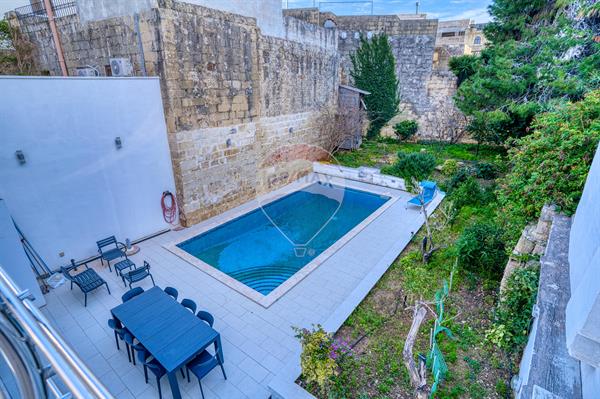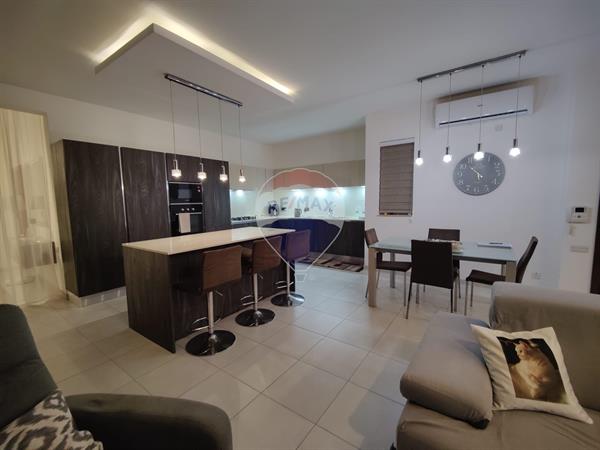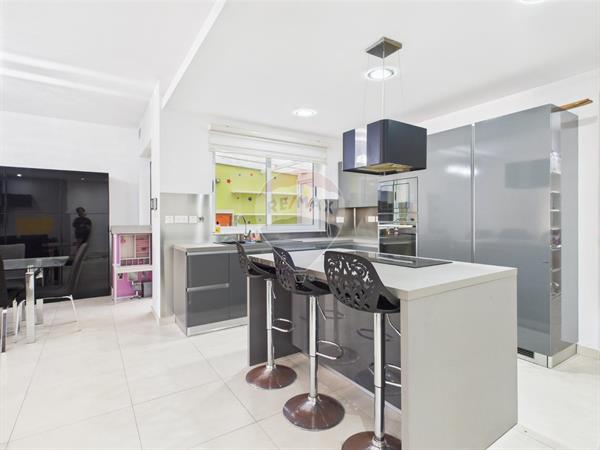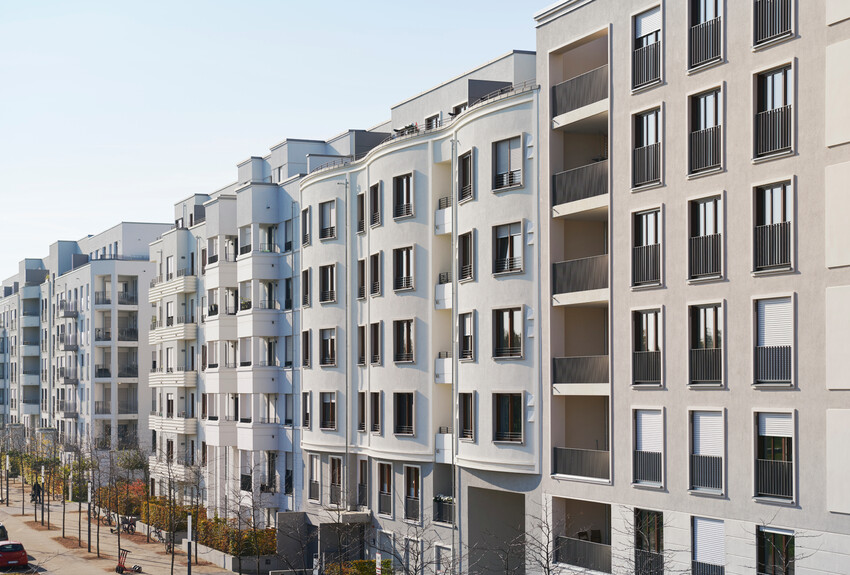
The ultimate handbook to everything property in Malta
Summary of the property market market in Malta
The housing sector industry in Malta is a thriving and strong market that has caught the attention of both domestic and overseas investors. It is recognized for its ability to withstand challenges. It has been experiencing steady development, solidifying Malta as a desirable location for those looking to invest, retire, or have a second residence in the Mediterranean region. Its attractiveness stems from the country’s stable economy, favourable weather, and robust legal system that safeguards property ownership rights.
Malta offers a variety of property types, ranging from traditional Maltese townhouses with their distinctive limestone walls and wooden balconies to modern high-rise flat complexes equipped with all the contemporary amenities. The market caters to diverse preferences, whether searching for the charm of the old world in locations like Valletta and Mdina or modern luxury in the more cosmopolitan areas such as Sliema and St. Julian’s.
There is often a higher demand than supply in the real estate market in Malta, especially in popular areas, resulting in a gradual rise in property prices over time. The luxury real estate, which offers upscale finishes and stunning views of the Mediterranean, demands higher prices and attracts wealthy buyers and investors.
The IIP and Flat and Visa Programme in Malta have contributed to the increased interest in property market by offering opportunities for non-EU citizens to acquire Maltese residency or citizenship through property investment. This has led to a specialized market for luxurious properties aimed at affluent individuals.
Furthermore, Malta’s rental market is flourishing due to a continuous flow of expatriates relocating to the island for employment or recreational purposes, as well as the booming tourism sector. This creates a significant potential for individuals seeking to invest in properties for rental income, especially in locations near commercial hubs, popular tourist destinations, or educational facilities, which tend to have high occupancy rates.
Even though the housing sector in Malta is diverse and full of potential, there are also obstacles to consider. Topics like excessive development, finding a compromise between protecting old buildings and wanting modern amenities, and the scarcity of reasonably priced housing for lower-income individuals are all ongoing discussions that shape the market’s direction and potential.
The housing sector industry in Malta offers a mix of potential and distinctiveness, supported by its rich cultural background, advantageous geographical position, and strong legal framework for property deals. It is a market worth considering for individuals seeking to invest in European properties with a touch of Mediterranean charm.
Purchasing property market in Malta: Steps and necessary legal obligations.
If you are considering purchasing property in Malta, it is crucial to be familiar with the necessary procedures and legal requirements. The first step is choosing a property, and this is followed by a systematic process to guarantee a safe transfer of ownership. It is recommended for potential buyers, particularly those from other countries, to enlist the help of a trusted property broker and a lawyer who is knowledgeable in Maltese property laws.
After selecting a property, a preliminary agreement called the ‘Promise of Sale’ (or ‘Konvenju’) is created. This agreement outlines the details and conditions of the sale, such as the price, special terms, and the timeframe for signing the final deed of sale – usually within three months. A deposit of 10% of the purchase price is also paid at this time and is kept in escrow by a notary until the sale is completed.
The notary performs thorough research to verify that the property is not burdened by any legal obstacles, such as hypothecs or liens. This involves confirming the seller’s ownership, reviewing existing mortgages, and ensuring there are no outside parties making claims on the property. Additionally, the notary takes responsibility for obtaining any necessary permits, especially for non-residents.
- EU citizens who have lived in Malta for at least five years are free to buy any type and quantity of properties. Those who have not met this requirement can only purchase one property, unless it is in a Special Designated Area (SDA) like Portomaso or Tigne Point, where there are no limitations.
- People who are not citizens of the European Union must adhere to stricter rules in order to buy property and generally need an Buying process of Immovable Property permit. This procedure may take a couple of months and has specific requirements, such as a minimum sale price. There are certain situations where the AIP permit is not necessary, such as when buying property in an SDA.
The last sales agreement is formalized in the presence of a notary once the thorough investigation process is finished. The buyer must then pay any remaining amount for the purchase, along with the necessary stamp duty and notary fees. This is when the property is officially transferred and the notary registers the document with the Public Registry.
Aside from legal processes, financial considerations must also be taken into account. When purchasing property, buyers should keep in mind the expenses involved, such as stamp duty (which is currently set at 5% of the property’s value), notarial fees (usually around 1% to 2% of the purchase price), and any other legal fees.
When buying a new property, it’s typical to make payments at different stages based on the progress of construction. It is crucial to have a well-defined contract in these cases to safeguard the buyer’s money and make sure the property meets the agreed-upon specifications.
The significance of comprehending and complying with the legal system in Malta cannot be emphasized enough, whether buying property for personal or investment purposes. It is recommended that interested buyers conduct extensive research or seek guidance from legal professionals to ensure a seamless and protected property procurement procedure.
Factors to contemplate when investing and residing.
When deciding to invest or make a permanent home in Malta, it is essential to carefully select the appropriate neighborhood. Although the island is small, it provides a variety of regions, each with its own charms and qualities. The decision of where to live depends greatly on individual preferences, financial situation, and the reason for buying the property – whether it be for personal flat, rental income, or vacation getaway.
Sliema and St. Julian’s are top picks for those seeking a cosmopolitan atmosphere. These lively cities, recognized for their upscale tall apartments, present a diverse selection of dining options, bars, malls, and an energetic nightlife. They are also highly coveted locations for rental properties, thanks to their attractiveness to both visitors and foreign residents.
Valletta, a UNESCO World Heritage site, is admired by those who appreciate history and culture. Its meticulously restored townhouses and palazzos add to the allure. The city’s rich history and enduring charm make it a distinctive location for residences or boutique hotels and vacation rentals.
To experience the genuine Maltese lifestyle, you can visit areas like Mosta and Naxxar where you can find traditional townhouses and villas embellished with unique elements such as central courtyards and decorative tiles. These neighborhoods have a relaxed atmosphere and are ideal for families or individuals seeking to fully embrace the local culture.
- Rabat and Mdina present a quieter, more rustic lifestyle. Largely residential with a slower pace of life, these areas are steeped in history, providing a serene escape from the more tourist-centric localities.
- The cities of Vittoriosa, Senglea, and Cospicua offer a harmonious mix of history and contemporary development, with renovated harbors and marinas adding a striking contrast to the ancient walls and narrow roads.
- To provide a higher-end living experience, exclusive neighborhoods like Fort Cambridge or Madliena Village are available for those who desire luxury. These areas offer upscale residences and shared facilities like swimming pools, gyms, and security measures.
- The island’s northern regions, such as Mellieha and Gozo, feature peaceful surroundings and are well-known for their beautiful beaches and laid-back lifestyle. These areas are ideal for individuals seeking a vacation home or a peaceful retirement surrounded by nature.
Individuals looking for property earnings may want to explore properties in close proximity to the University of Malta or the Malta International Airport, as the demand for rental properties remains consistently strong. Additionally, locations such as Gzira and Msida are experiencing extensive renovations and present attractive investment prospects with potential for both appreciation of property value and rental profits.
Knowing the different trends in local markets and the trajectories of property values is very important. For example, although secluded areas in the central and northern parts might offer more peace and quiet, the southern regions of Malta are becoming more popular due to their reasonable prices and ongoing development plans, indicating potential for growth and investment.
Each region in Malta caters to various preferences and goals. Investment centres will remain alluring for individuals seeking to generate rental revenue and increase capital, while personal preferences will guide those searching for a permanent apartment. It is advisable to fully explore the island, visit different areas, and consider future developments and infrastructure projects that may impact the value and livability of the location before deciding to invest or settle down.
Comprehending the fees associated with owning property as well as any supplementary expenses.
Understanding housing taxes and other associated expenses is crucial for those interested in buying property in Malta. These costs are not included in the property’s price and must be planned for in advance to avoid unexpected surprises during the purchasing procedure.
Regarding taxes, a major factor to consider is the stamp duty. In Malta, the stamp duty for buying property is 5% of the purchase price. However, if you are a first-time buyer, you could potentially receive a lower rate or even be exempt from paying, as the government offers incentives to encourage people to become homeowners. There may also be reduced rates available under certain circumstances, such as purchasing property in urban conservation areas or intending to live in the property as your primary residence.
The Value Added Tax (VAT) is a significant financial factor to consider, as it does not pertain to the buying of fixed assets but is applicable to the services related to the transaction. This includes expenses for legal assistance, architectural services, and notary fees, which typically have a VAT rate of 18% in Malta. It is important to remember this when determining the total expenses of purchasing property.
Buyers should be prepared to pay notarial fees for closing costs. These fees typically range from 1% to 2% of the property’s value. In Malta, notaries play an important role in buying property, conducting necessary checks and registering public deeds. They ensure that there are no legal issues or debts that could impact the transaction.
- The seller of a property usually covers the agency fees for property market transactions, which may ultimately impact the property’s final selling price.
- One must factor in the expense of property insurance. Although it is not required by law, it is a wise decision to safeguard your investment from potential hazards such as hurricanes, robbery, and other forms of destruction.
- If you are taking out a loan or mortgage to fund your property purchase, banks require you to pay a fee called an arrangement fee. The specific amount for this service will differ based on the bank and the loan amount.
Following the purchase, it is important for property owners to remain informed about the yearly housing taxes. An example of this type of tax is the Immovable Property Tax, which was discontinued in 2019 to streamline ownership expenses. However, this does not imply that there are no other regular fees to consider. Depending on the location, there may be additional expenses for council rates to support community amenities and upkeep of infrastructure. These fees are typically reasonable and determined by the property’s characteristics and size.
Fees for eco-friendly contributions may be included for particular household products and electronic devices, affecting the overall expense of furnishing a new residence. In addition to costs mandated by the government, homeowners must also account for fees related to connecting and using utilities, such as electricity, water, and other services, which can fluctuate depending on usage.
Potential buyers, especially those who do not live in Malta permanently, should consider the upkeep of common areas and facilities in a condominium, such as regular maintenance and renovation expenses and potential management fees. These costs are divided among all the owners in the same development.
Gaining knowledge of the expenses involved in buying and maintaining property in Malta promotes transparency and aids in effective financial preparation. Seeking advice from a financial specialist or a housing sector professional can provide an individualized understanding of these costs and ensure buyers are adequately prepared for their property ventures in Malta.

House of Character For Sale
In Mosta
Mosta - Exclusive with REMAX This spectacular residence has been meticulously restored, blending historical charm with ...

Penthouse For Sale
In Mgarr
MGARR - PENTHOUSE situated on the 4th floor, served with lift and located in a sought area of this lovely village. Layou...

Maisonette For Sale
In Attard
ATTARD – MAISONETTE – Nestled in a quiet and sought-after residential area of Attard, this beautifully designed and ...

House of Character For Sale
In Mosta
Mosta - Exclusive with REMAX This spectacular residence has been meticulously restored, blending historical charm with ...

Penthouse For Sale
In Mgarr
MGARR - PENTHOUSE situated on the 4th floor, served with lift and located in a sought area of this lovely village. Layou...

Maisonette For Sale
In Attard
ATTARD – MAISONETTE – Nestled in a quiet and sought-after residential area of Attard, this beautifully designed and ...


